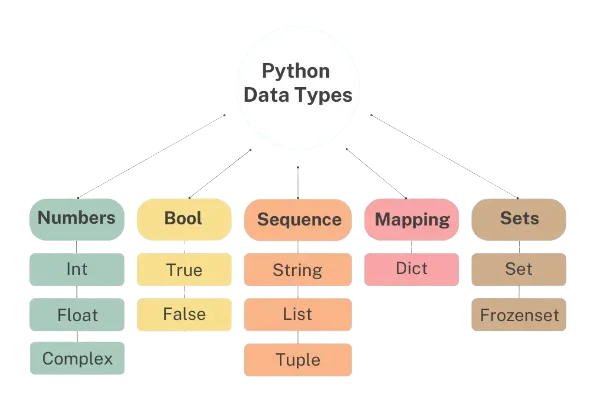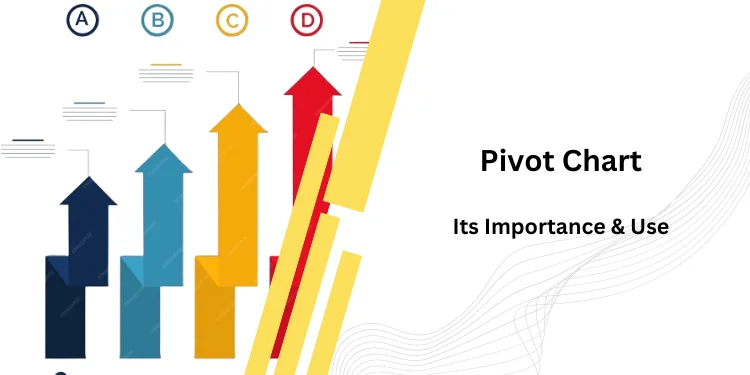Introduction Big Data Analytics
Want to develop your career in Big Data Analytics but are worried about its future scope and growth? Here are The important aspects covered in this blog which you should know before selecting this career as a full-time. From 2019, Jobs in the Big Data industry will increase by 46%. Still, around 93,000 jobs in Big Data were vacant at the end of August 2020 in India. The average income in Big Data Developer in India is between 7.4 L.P.A for freshers.
The job profile of a Big Data Engineer is one of the most demanding roles nowadays. Their value is so high for any company across all sectors and also they get high salaries for offering their skills and talent.
As multiple companies are accepting Big Data technologies and mining data to develop valuable Information, the demand for big data-related jobs opportunities is increasing day by day.
Companies are seeking skilled Big Data Engineers who can work with a huge amount of complex data and crunch it to extract meaningful `for the business. As this job post needs a high level of expertise and skill in Big Data, the Big Data Engineer income has been scaling up. Working with big data analytics can often take a big team with highly skilled engineers. Big Data engineers are expected to work with employees in professions such as data architect, data platform engineer, data warehouse engineer, data infrastructure engineer, analytics engineer, and DevOps engineer
From the new data churned by Burning Glass’s Nova platform, Data Engineer jobs ranking is one of the top jobs in the tech sector, with approximately 88.3% increase in job postings in the span of 12 months.
With the accelerating data growth & data sources, multiple obstacles have emerged in storing, processing & handling data. The main challenges are – a large volume of data, the speed at which data is getting generated, inconsistency in data & multiple types in which data is present. This is known as Big Data Analytics.
About Big Data
This technology (Big Data Analytics) has a variety, high-volume, and velocity information that requires cost-effective, innovative types of information processing for increased insight and also for support in decision making to any organization.
This definition clearly gives the answer to the question “What is Big Data?” Big Data or Big Data Analytics refers to a large number of data sets that must be examined and processed in order to collect information that can be useful by businesses and organizations for a variety of purposes, including decision-making, forecasting the future and more.
However, there is some more information about Big Data Analytics that is going to make it, even more, simpler to answer the question of what is Big Data Analytics:
- It refers to a huge amount of data that remains growing with respect to time.
- Its volume is so much that it cannot be processed or analyzed using normal data processing techniques.
- It contains data storage, data sharing, data mining, data visualization, and data analysis.
- The term is an all-comprehensive one containing data frameworks, data, along tools and techniques used to process and analyze the data.
Roles and Responsibilities | Big Data Analytics

Big Data Engineer Responsibilities
- Collect and process raw data at scale.
- Develop and design data applications by using frameworks and tools.
- Read, extract, transform, stage, and load data to frameworks and tools as and when needed and requested.
- Carry out tasks like web scraping, writing scripts, calling APIs, writing SQL queries, etc.
- Work and coordinate with the engineering team to integrate the work into our production systems.
- Process unstructured data into meaningful information so that it can be used for analysis.
- Analyze processed data.
- Support business decisions with ad hoc analysis as and when needed.
- Monitoring performance of data and modifying infrastructure as and when required.
- Define policies of data retention.
Demand for Big Data Engineer | Big Data Analytics
Recently, Peter Sondergaard of Gartner Research highlighted the importance of Big Data Analytics in the modern digital world when he stated that:
“In the 21st century, Information, Research, and data are the oil, and analytics is the engine that runs on it.”
The amount of data we’re generating every minute is continuously increasing day by day. While Data Science gurus swear by the significance of data, what will be the use of data if there aren’t enough professionals with Big Data Analytics skills? Who is able to analyze these massive quantities of data and convert them into a valuable business resource?
As organizations around the globe know the true potential of data, the demand for skilled. Big Data Analytics professionals are increasing with time. To process this data, c is very important.
Technologies used in Big Data Analytics

- Hadoop Ecosystem
Hadoop Framework was built to store and process data with a simple programming concept in a distributed data processing system. Data from a variety of high-speed and low-cost equipment can be saved and evaluated. Organizations have adopted Hadoop as Big Data Analytics for their data warehouse requirement for the past few years. It seems like this trend will continue to grow in the next coming year also. Organizations that have not adopted Hadoop so far are mostly going to see its advantages and applications in the future.
- Artificial Intelligence
Artificial Intelligence(AI) is a broad bandwidth of computer technology that is associated with the development of intelligent machines which can carry out multiple tasks typically requiring human intelligence. AI is growing so fast from Apple’s Siri to self-driving cars like Tesla. Being an interdisciplinary branch of Computer Science, it takes into account multiple approaches such as increased Deep Learning and Machine Learning to develop a remarkable shift in most tech industries. AI is transforming the existing Big Data Technologies.
- NoSQL Database
NoSQL contains multiple varieties of Big Data Technologies in the DBMS, which are built to develop modern applications. It shows a non-SQL or non-relational database giving way for data recovery and acquisition. They are used in Big Data Analytics and the Web in real-time. It stores unstructured data, provides faster performance and flexibility, and can handle a variety of data types, such as Redis, Cassandra, and MongoDB. It gives easier horizontal scaling, design integrity, and control over opportunities in a wide range of devices. By default, it uses data structures that are separate from those used by databases, allowing NoSQL calculations to run faster. Google, Twitter, Facebook, and multiple similar companies store user data terabytes daily.
R is one of the ope
n-source programming languages used in the field of Big Data analytics. This free software which can be used by any user is mostly used in computing, statistical visualization, unified development environments such as Visual Studio and Eclipse which are assistance communication. According to experts’ opinion, it has been one of the world’s leading languages of all time. The language is also mostly used by data miners and statisticians to build statistical software which is mainly focused upon big data analytics.
- Data Lakes
Data Lakes is also known as a consolidated repository for the storage of multiple types of data formats at all levels in terms of structural and unstructured data.
Data can be saved at the time of Data collection without being converted into structured data. It enables performing multiple types of Data analysis from dashboards and Data visualization to Big Data conversion in real-time for good business interference
Salary of Big Data Engineer | Big Data Analytics

From the Glassdoor report, the average Big Data Engineers salary in India is around Rs.8,56,643 LPA. Still, the Big Data Engineer’s salary completely depends on several factors, including company size, education qualifications, job position, geographical location, and work experience. Big organizations like IBM, Amazon, Accenture, Deloitte, Airbnb, Spotify, Netflix, and Capgemini, usually offer a good package. Also, if you have more experience in Big Data Analytics, the higher will be your market value in the industries.
Due to the shortage of Big Data engineers as compared with demand, companies are ready to offer a good package to freshers and candidates having some years of experience in Big Data Engineering as well. A Big Data Engineer with less than one year of experience can earn an average yearly income of Rs.4,00,676 LPA, according to PayScale data.
Big Data Engineers with a few years of experience (1-4 years) can expect to earn around Rs.7,37,257 LPA.
As they move forward to mid-level (with about 5-9 years of work experience), the income of a Big Data Engineer increases to Rs.1,218,983 LPA. Big Data Engineers having about 15 years of work experience can make approximately Rs.1,579,282 LPA.
Skills required to be a Data Engineer | Big Data Analytics
Some of the most important skills to become a successful Big Data Developer are:
- Knowledge of Hadoop-based technologies or Hadoop Frameworks.
- Knowledge of Real-time processing frameworks like Apache Spark.
- SQL-based technologies.
- Knowledge of NoSQL-based technologies such as Cassandra, MongoDB, HBase.
- Knowledge of any one programming language (Java/Python/R).
- Visualization tools such as Tableau, QlikSense, QlikView.
- Data Mining tools like KNIME, Rapidminer, etc.
- Knowledge of Machine learning algorithms.
- Knowledge of Statistical & quantitative analysis.
- Good knowledge of Unix or Linux or Solaris or MS-Windows.
- Must have creative thinking ability and problem-solving.
- Must have Business Knowledge.
Roadmap to becoming Big Data Engineer | Big Data Analytics

- Build Your Base(SQL, Coding, Linux):
Developing your base is very important and should be the first step to learning any new technology.
- Build Your First Project: Building A Flask API:
Start with developing your first project as Building A Flask API.
- Get some knowledge About Data Warehousing And Data Pipelines(ETLs, ELTs, and ELs):
Learning about Data warehousing and Data Pipeline both are similar concepts but still have some differences so, it’s important to learn both of the technologies.
It’s time to develop your second project by using the Data warehousing concept. Develop Your Second Project by Applying Coding And using Data Warehousing:
- (a.) Learn About Testing: Learning about testing is also important.
(b.) Learn Airflow And Docker: While learning about testing you should learn Airflow and Docker parallelly. - Cloud and NoSQL: Start Developing your skills on cloud and as you already know about SQL so it’s time to gain some knowledge of NoSQL.
- Streaming And Distributed Systems: Start Developing your skills in Streaming and also get some knowledge of distributed systems.
- Start Studying for Interviews: At this point, you already possess some knowledge regarding big data so you must apply for a job and start studying for the job interview.
- Build Your Third Project: It’s time to build your third project. You should know about streaming, programming, distributed systems, APIs, and many more technologies. So now use all of the knowledge and apply it to build your third project.
- Learn Enough UI/UX and Dashboarding: A dashboard is a screen in your application that shows information to the user. At last, start learning UI/UX and Dashboarding
Also read: Docker interview questions and answers
Future Scope of Big Data Analytics
Big Data is an ever-growing sector. It is gaining popularity with its potential application in many organizations. Thus, a career in the field is one of the perfect choices for one who is looking for a long and stable career with high rewards.
As data continues to grow and expand, cloud space providers like Microsoft Azure Google Cloud, AWS and are going to rule in storing big data. This will increase room for scalability and efficiency for companies. This also means there will be more and more candidate hired to manage these data, which translate to more job opportunities for “Big Data Engineers” to handle the database and huge amount of data of a company.,
Looking at stats it can be determined that organizations are adopting this new technology and in the future, Big Data is going to be one of the best technologies.
Conclusion:
Because of Big Data, the industry is transforming to the next level. But, data is of no use unless there’s someone to analyze it and unravel the hidden patterns inside it. Businesses want insights from Big Data, and that is why they’re always looking for skilled professionals in this sector – candidates who can unlock the secrets that Big Data analytics holds.
Technologies in Big Data analytics like Spark and Hadoop are the buzzwords now. So, be sure to learn how to work with related tools like HBase, MapReduce, SparkSQL, GraphX, Spark RDD, Spark Streaming, SparkR, MLlib, Flume, Sqoop, Oozie, Kafka, Data frames, Hive, and many more.
Rest assured, if you learn to gather the correct skills, you will become an important asset to any organization invested in Big Data Analytics. You will grow with the company.














2 responses to “Future of Big Data Analytics in India”
[…] Future of big data and predictive analytics in healthcare has a great deal of promise for data science in healthcare. […]
[…] the future of big data analytics is growing exponentially, you should grab the […]